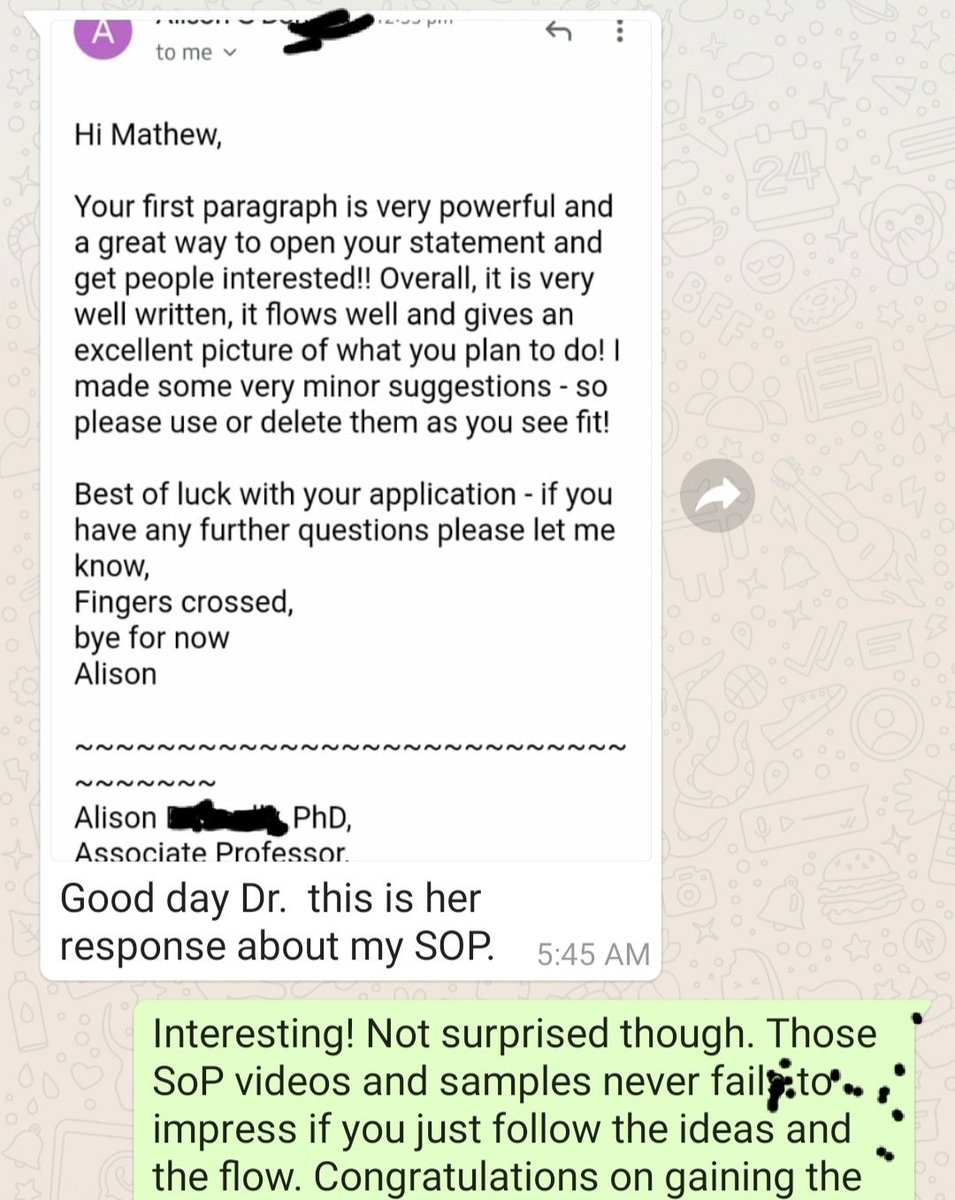
I almost passed my GRE or English test. If other requirements are strong, can I still submit my graduate school application?
It depends.
Here's why!👇
A short thread
#phdchat #phdforum #phdvoice #AcademicTwitter #edchat
It depends.
Here's why!👇
A short thread
#phdchat #phdforum #phdvoice #AcademicTwitter #edchat
Your chances will depend on how the application review process works for your intended program. Unfortunately, it is mostly hard to tell from the outside looking in.
For some programs, they use the test scores as an initial metric to screen out applicants when they have many applications than they can handle.
In this case, you are at risk of early rejection if you don't meet their minimum scores
In this case, you are at risk of early rejection if you don't meet their minimum scores
For others, they use the exams as part of a rubric to score and rank applicants (to know how this is used, a sample of such grad school rubric is explained here: )
In this case, you may be able to win their hearts when they see other parts of your application. In other words, you may rank low on the exam but rank exceptionally high at other aspects. The cumulative rank may then be in your favor.
The tricky thing is we often can't tell which path a program would take, and it may change from year to year based on the number of applicants.
Your best bet would be to at least meet the minimum scores listed on the department's webpage. But all hope isn't lost if you did not.
Your best bet would be to at least meet the minimum scores listed on the department's webpage. But all hope isn't lost if you did not.
So if you are close to the minimum, you can either try again, or target similar programs with exam waivers, target less-research intensive universities, and try to request for an application fee waiver and hope it all works out.
Cheers to your success.
If you liked this, follow @bestman_academy for more tips on grad school and postgrad US Permanent Residency
If you liked this, follow @bestman_academy for more tips on grad school and postgrad US Permanent Residency
• • •
Missing some Tweet in this thread? You can try to
force a refresh




